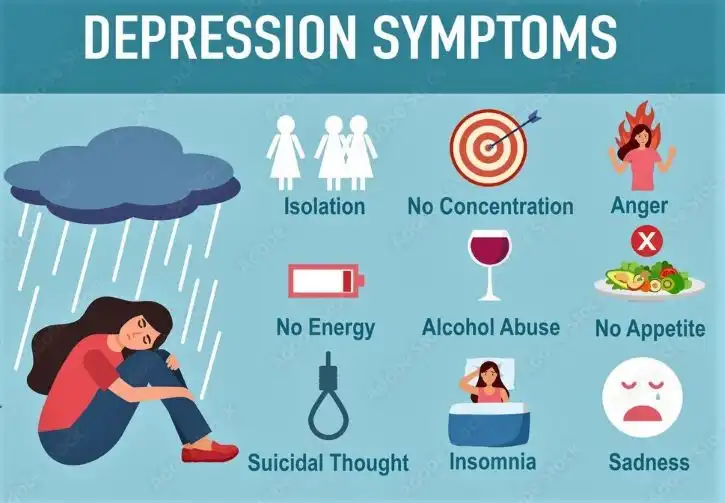When are you depressed? You should know the causes and preventions
Everyone occasionally feels depressed. However, depression is more than that. It is prolonged, intense melancholy or sorrow. the disease disrupts daily routines and may result in physical symptoms, including discomfort, increased weight loss, irregular sleeping patterns, or a lack of vitality.
Additionally, those who suffer from depression may struggle to focus, feel excessively guilty or unworthy, or have frequent thoughts of harming themselves. Serotonin and norepinephrine, two brain chemicals associated with sadness, cause this since they affect mood and pain.
Related Posts
Physical signs of depression:
- These could include
- Joint discomfort
- Back pain
- Gastrointestinal issues
- Sleep issues
- Changes in appetite
- Slow down your speech and actions.
Table of Contents
Depression causes
There are several possible causes of it including:
Hormone level: A person’s risk for depression may increase due to changes in the female hormones estrogen and progesterone at various times, such as during the menstrual cycle, postpartum period, menopause, or perimenopause. To monitor your hormone levels, you can undergo a vitamin blood test that specifically measures female hormones.
Brain structure: You are more likely to experience depression if your frontal lobe is less active in your brain. However, it is unknown whether this occurs before or after the start of its symptoms.
Pain: Long-term emotional or physical suffering considerably increases the risk of depression in the sufferer.
Family background: If tention or another mood disorder runs in your family, you run a higher risk of having it yourself.
You are using drugs: If you have a history of substance or alcohol abuse, you are at risk of this stage.
Signs and Symptoms 
- feeling depressed, worried, or “empty.”
- feeling useless, cynical, and hopeless
- the trouble with concentration, memory, or decision-making
- crying a lot, feeling upset, irritated, or furious
- reduced energy or weariness
- moving or speaking more slowly, having trouble falling asleep, waking up early, or staying up late, and experiencing changes in appetite or weight
- persistent physical discomfort (headaches, aches or pains, digestive problems, cramps)
- Self-harm, suicide attempts, or death-related ideas
Whenever to visit a doctor
If you’re feeling low, schedule a visiting doctor as soon as possible. If you’re hesitant to get help, talk to a friend or family member, a doctor, a member of your religious community, or someone else you can trust.
Preventions
The most prevalent mental condition is depression. Happily, depression is curable with the aid of therapy and antidepressants. There is no foolproof method to stop it. However, these methods might be helpful.
Take steps to reduce stress, strengthen your resilience, and boost your self-confidence.
Reach out to loved ones and friends for support, especially during trying times.
To prevent depression from worsening, seek help as soon as a problem begins.
Taking long-term maintenance treatment to help prevent a recurrence of symptoms.